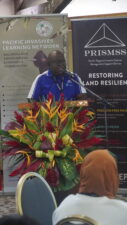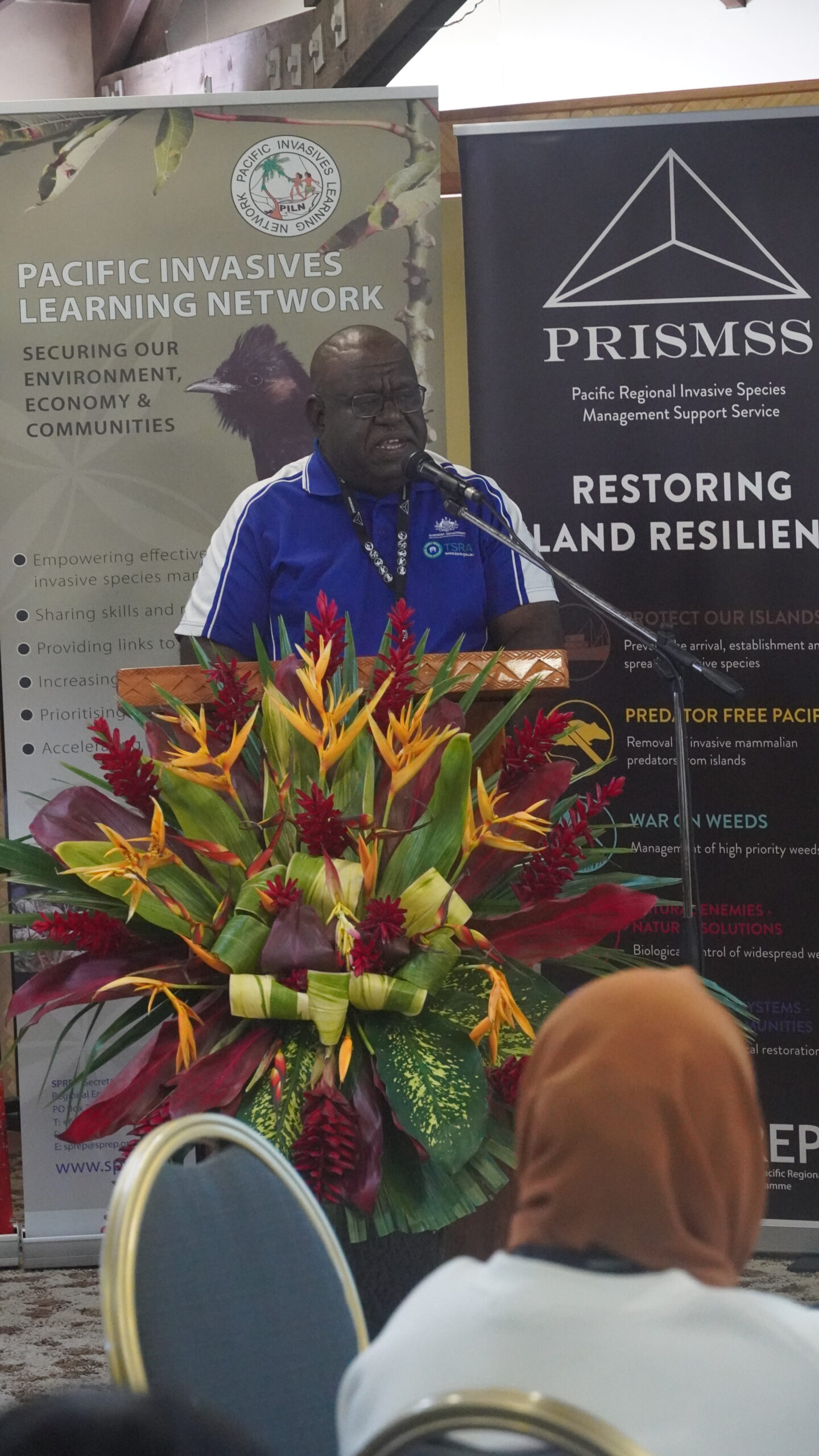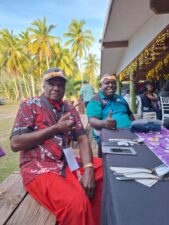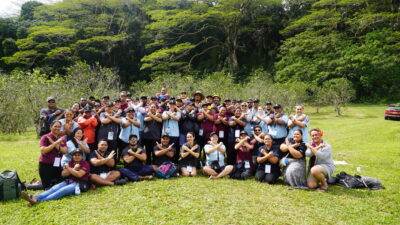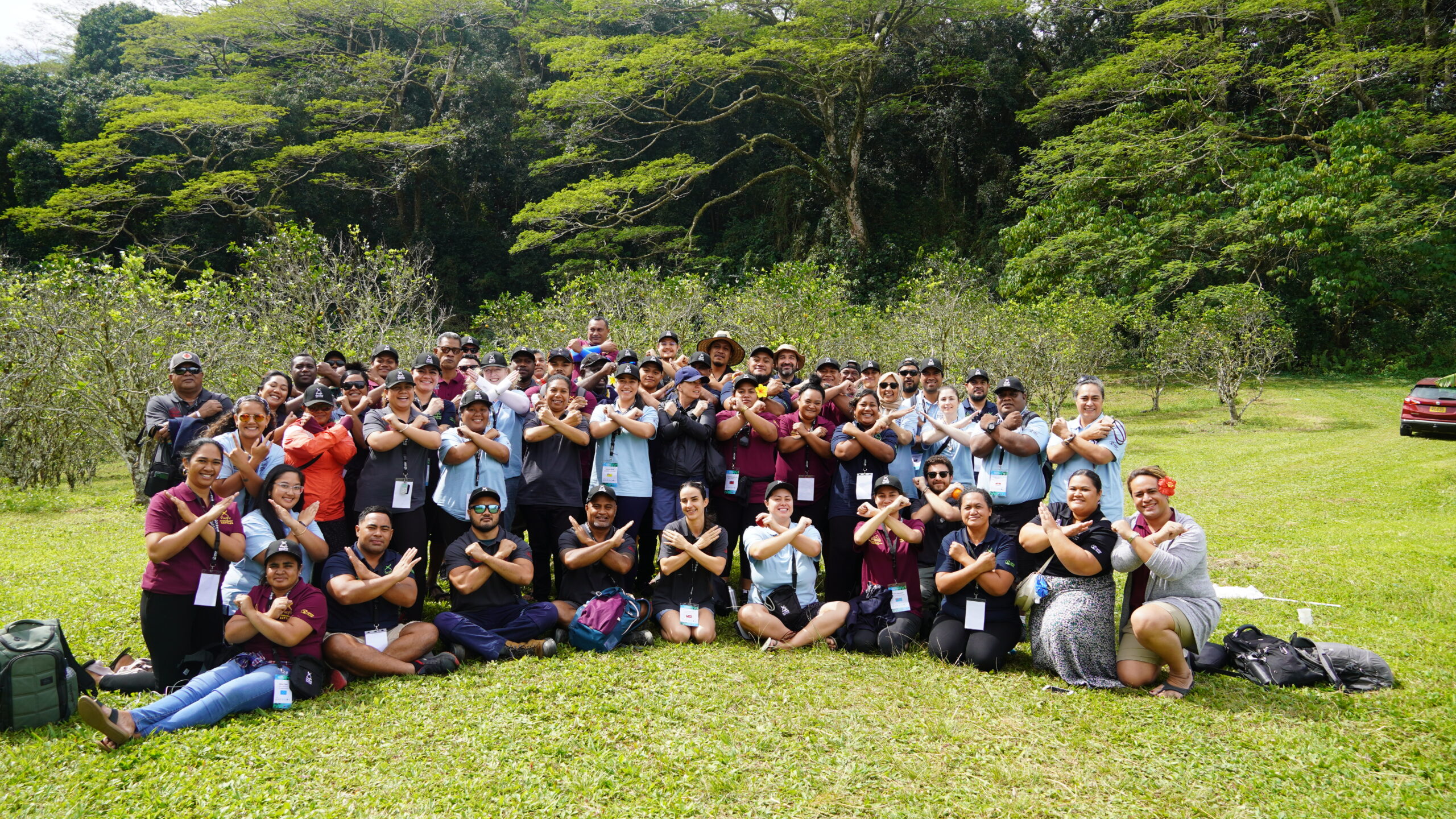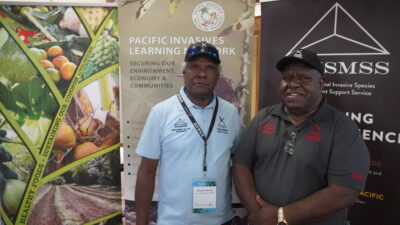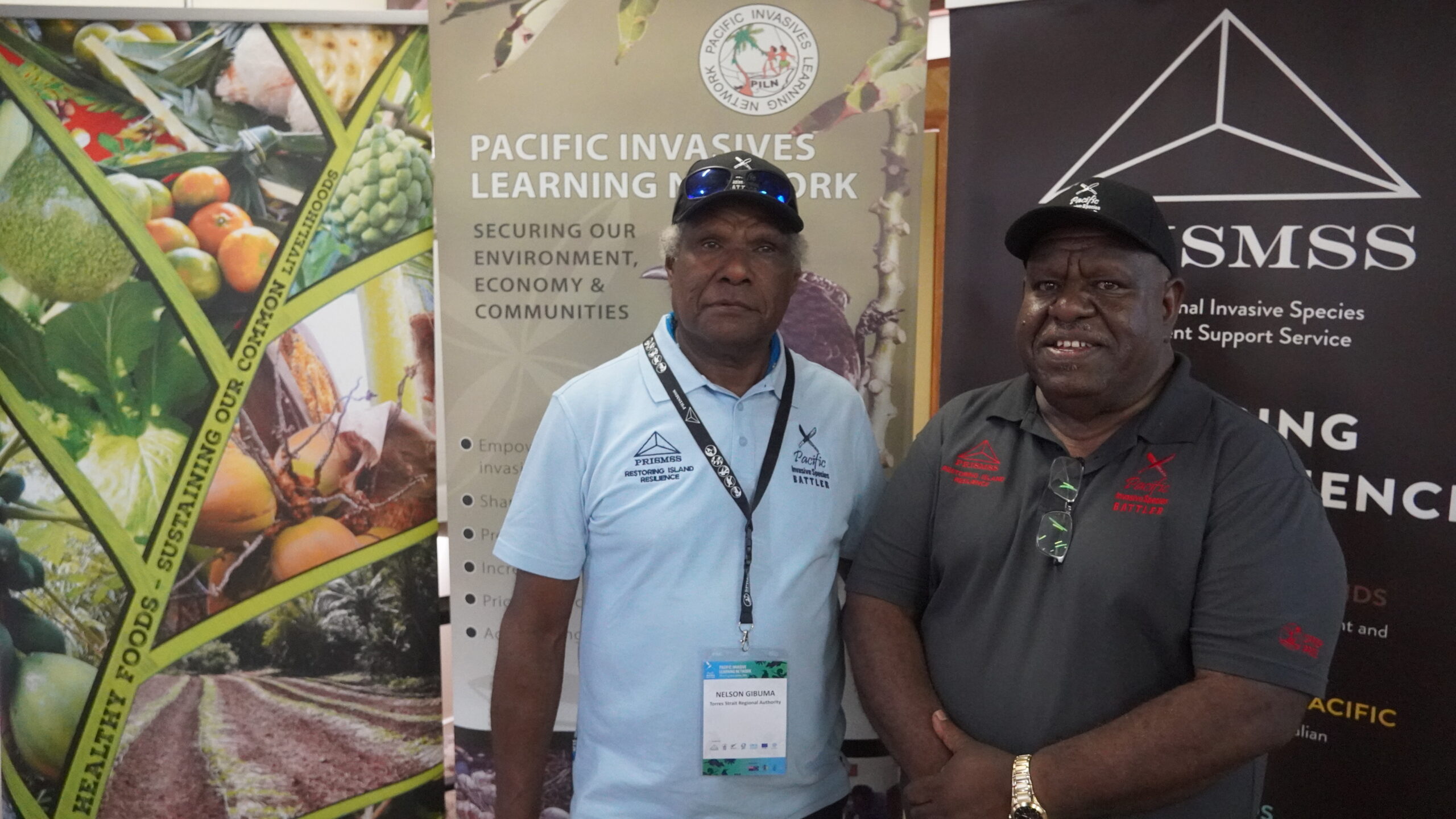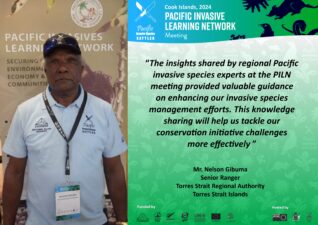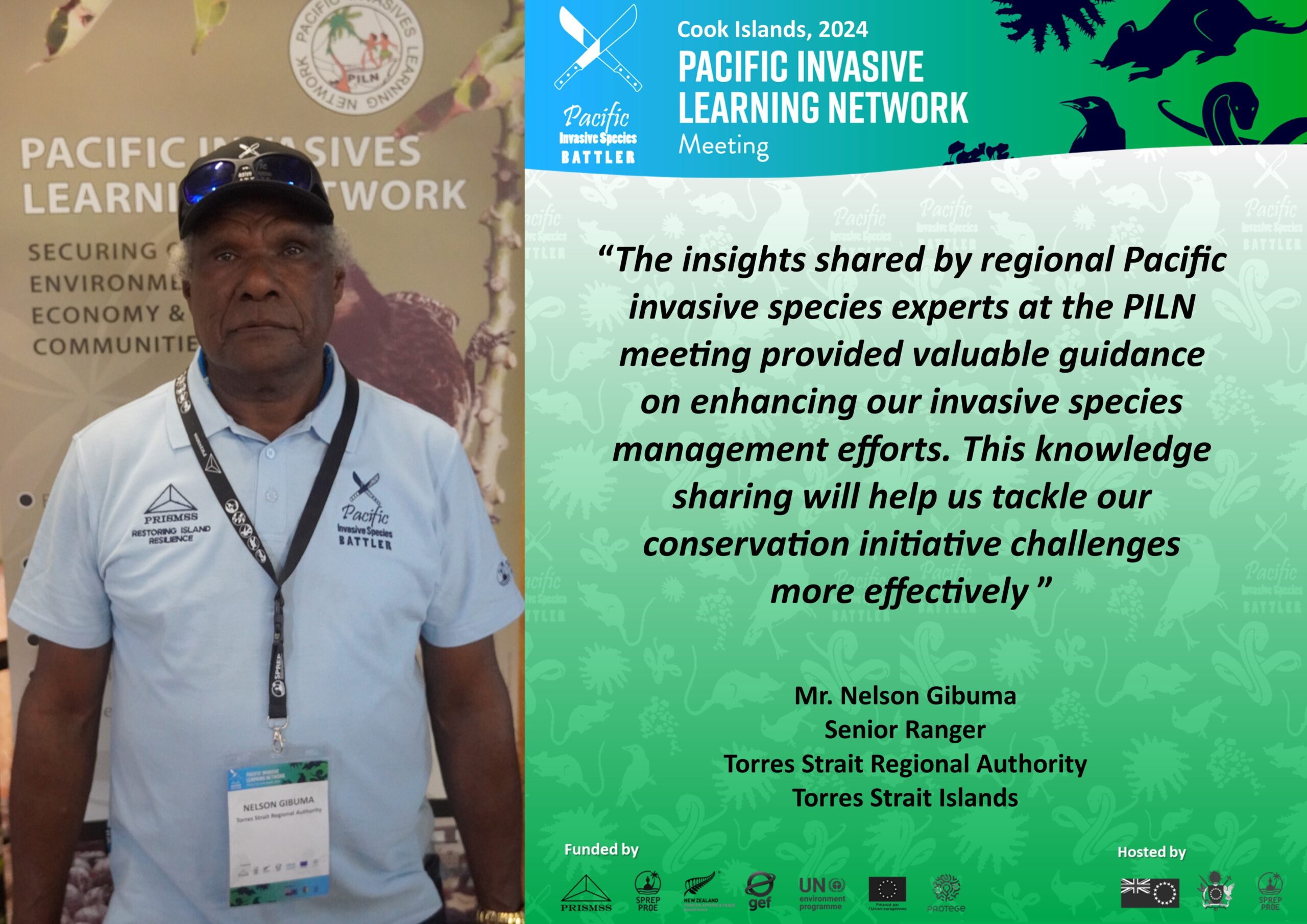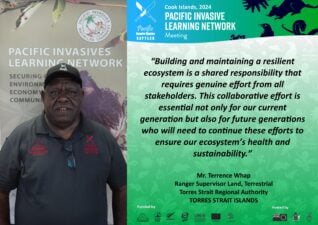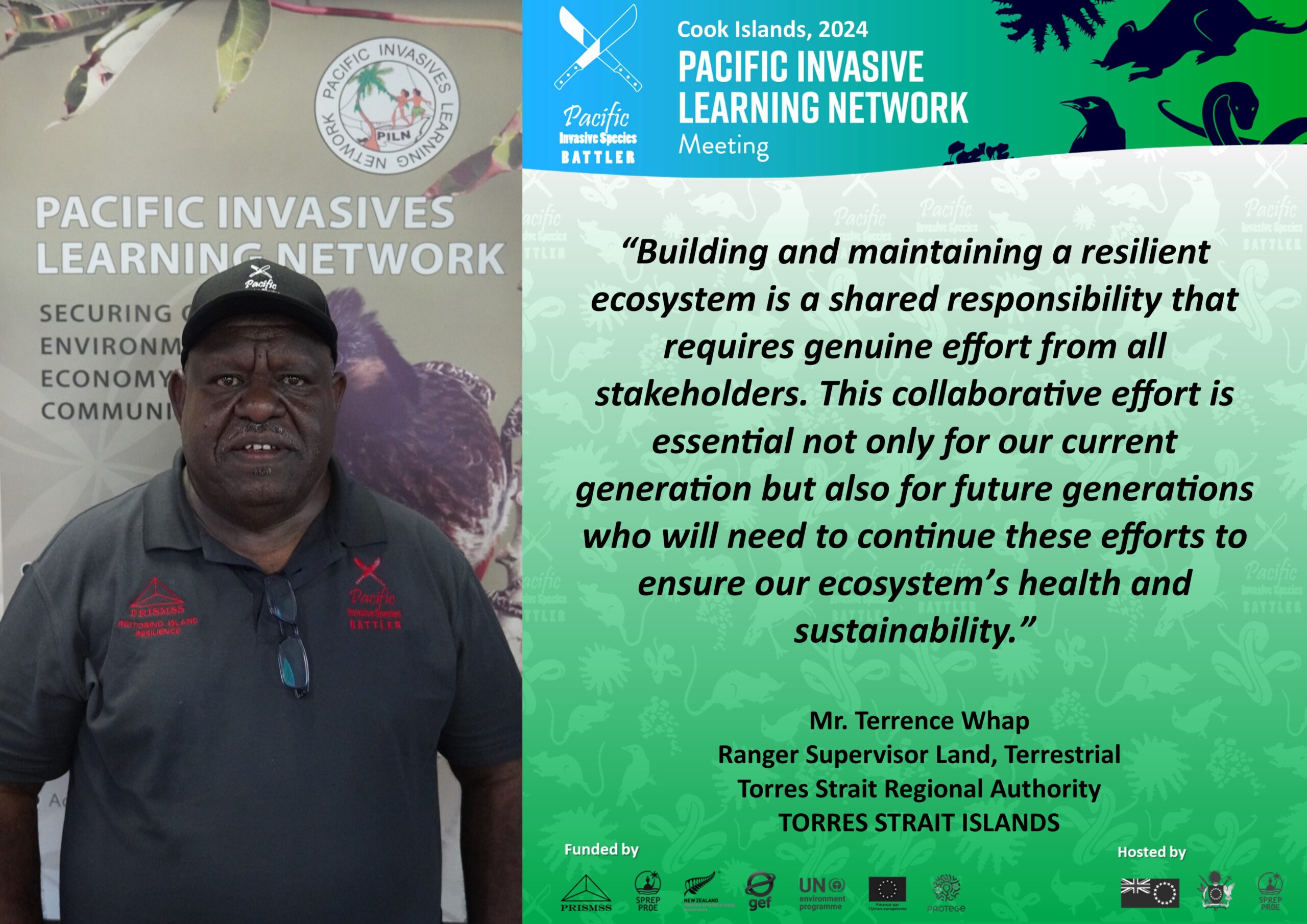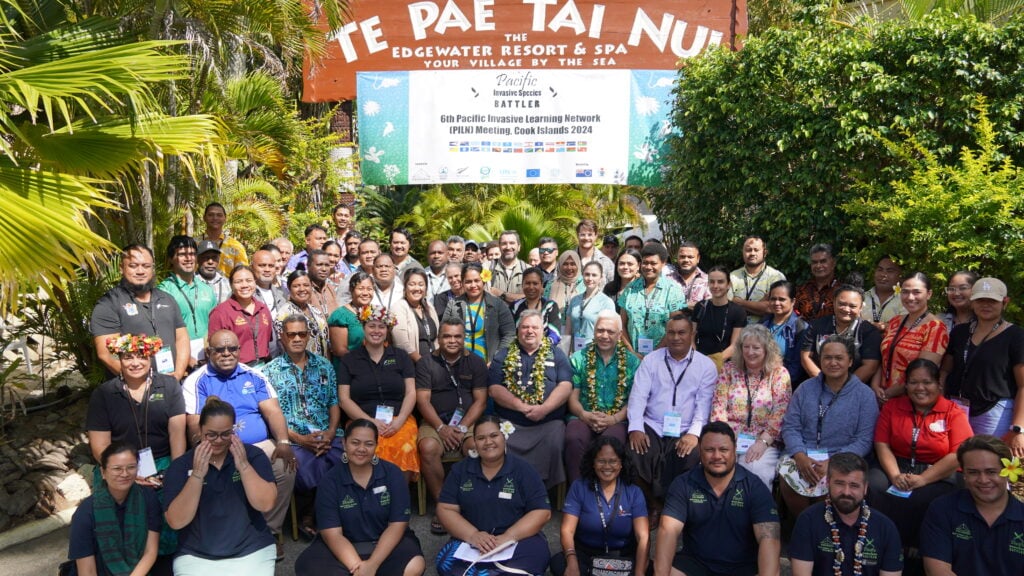
Traditional Owner Rangers from the Torres Strait Regional Authority (TSRA) joined over 70 invasive species professionals and practitioners at the sixth Pacific Invasive Learning Network (PILN), held by the Government of Cook Islands in August.
Senior Ranger Nelson Gibuma and Ranger Supervisor Terrence Whap journeyed to Raratonga and exchanged Traditional Ecological Knowledge (TEK) with invasive species battlers from across the Pacific. Specifically, they sought solutions to manage the invasive black rat (makas) population on Warul Kawa (Deliverance Island), part of the Ugul Malu Kawal Indigenous Protected Area (IPA).
“The knowledge shared at PILN will help us tackle challenges in Ugul Malu Kawa IPA,” Mr Gibuma said.
“We learnt how Tonga has eradicated rats from 10 of their islands, if they can do it, we can remove them from Warul Kawa” he added.
On their return to Zenadth Kes (Torres Strait), Mr Whap and Mr Gibuma presented their insights to fellow TSRA Rangers to reaffirm their conversation practices and efforts.
“Building and maintaining a resilient ecosystem is a shared responsibility,” Mr Whap said.
“We will continue to collaborate with each other and our stakeholders to ensure the health and sustainability of our region for future generations to come.”
TSRA Chairperson Napau Pedro Stephen AM acknowledged the efforts of the TSRA Rangers and recognised Nelson and Terrence for taking action to manage invasive species in Ugul Malu Kawa.
“Rangers and their efforts are a critical part in TSRAs Environmental Management Program which aims to protect the ecological complexity and biodiversity of Zenadth Kes,” Mr Stephen said.
“The opportunity to network outside the region and bring new perspectives and solutions to our challenges is one we embrace and support.”
“On behalf of the TSRA, I would like to thank the Pacific Invasive Learning Network for allowing the Torres Strait to participant and exchange Traditional Ecological Knowledge with other Traditional Owners and Pacific Islander Custodians of land and sea,” he added.
Taking further action, Senior Ranger Nelson Gibuma has facilitated an educational session for his community of Boigu where he spoke to Elders of Warul Kawa and referenced learnings from his exchange at PILN.
“We will look to apply these learnings into our 12-month roadmap for the Ugul Malu Kawa IPA,” Mr Gibuma declared.
The Pacific Invasive Learning Network (PILN) connects Pacific professionals and practitioners to share knowledge, expertise, tools, and ideas that are vital to managing invasive species effectively. PILN enables multi-disciplinary country teams to work together on strategies with critical input from other national teams and experts from throughout the region, resulting in a common vision and a plan for effective conservation action.
National PILN Teams bring together national agencies responsible for invasive species management, including those responsible for agriculture, natural resource management, international trade and border control, as well as environment and conservation.
The PILN meeting was made possible with funding support from the Global Environment Facility funded GEF 6 Regional Invasives Project, the European Union funded PROTEGE project, the New Zealand Government funded Managing Invasive Species for Climate Change Adaptation in the Pacific (MISCCAP) project and supported by the Secretariat of the Pacific Regional Environment Programme (SPREP) through the PRISMSS programme.
Learn more about the TSRA at www.tsra.gov.au and PILN at https://www.sprep.org/invasive-species-management-in-the-pacific/piln


